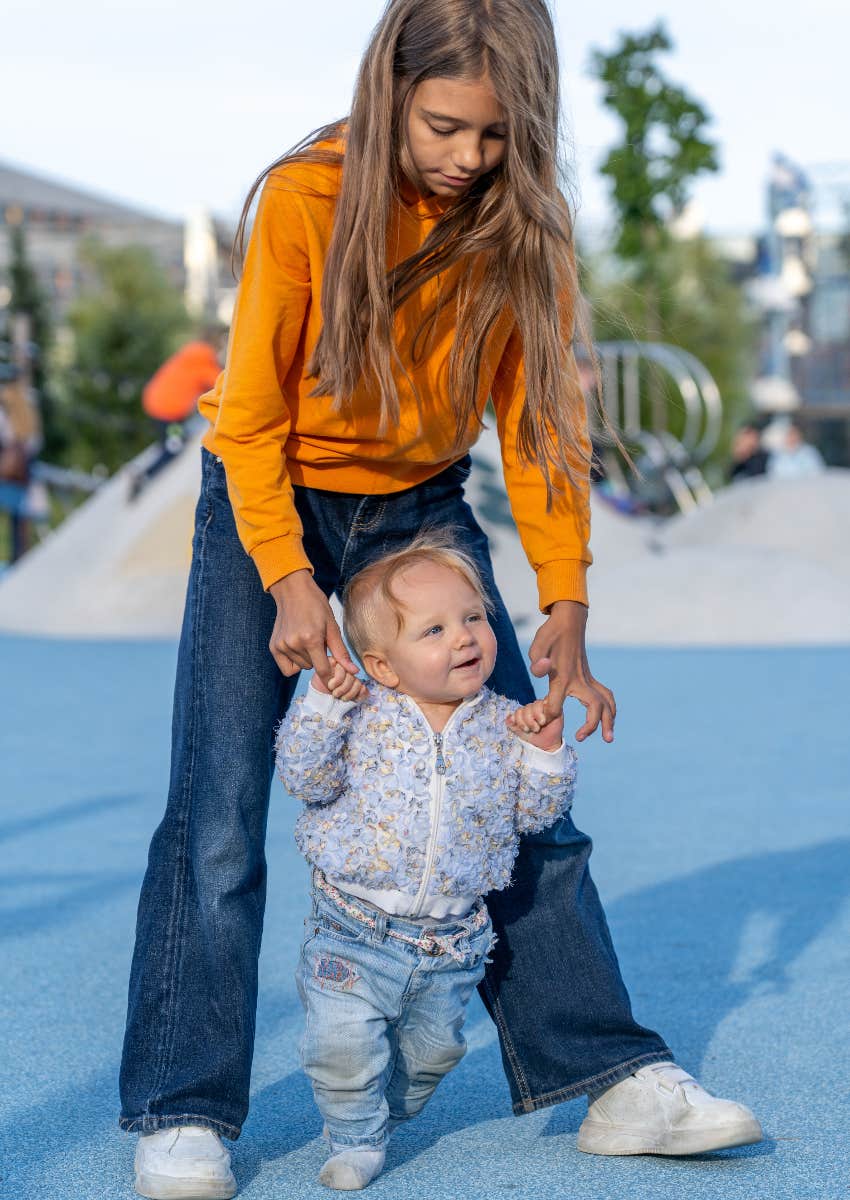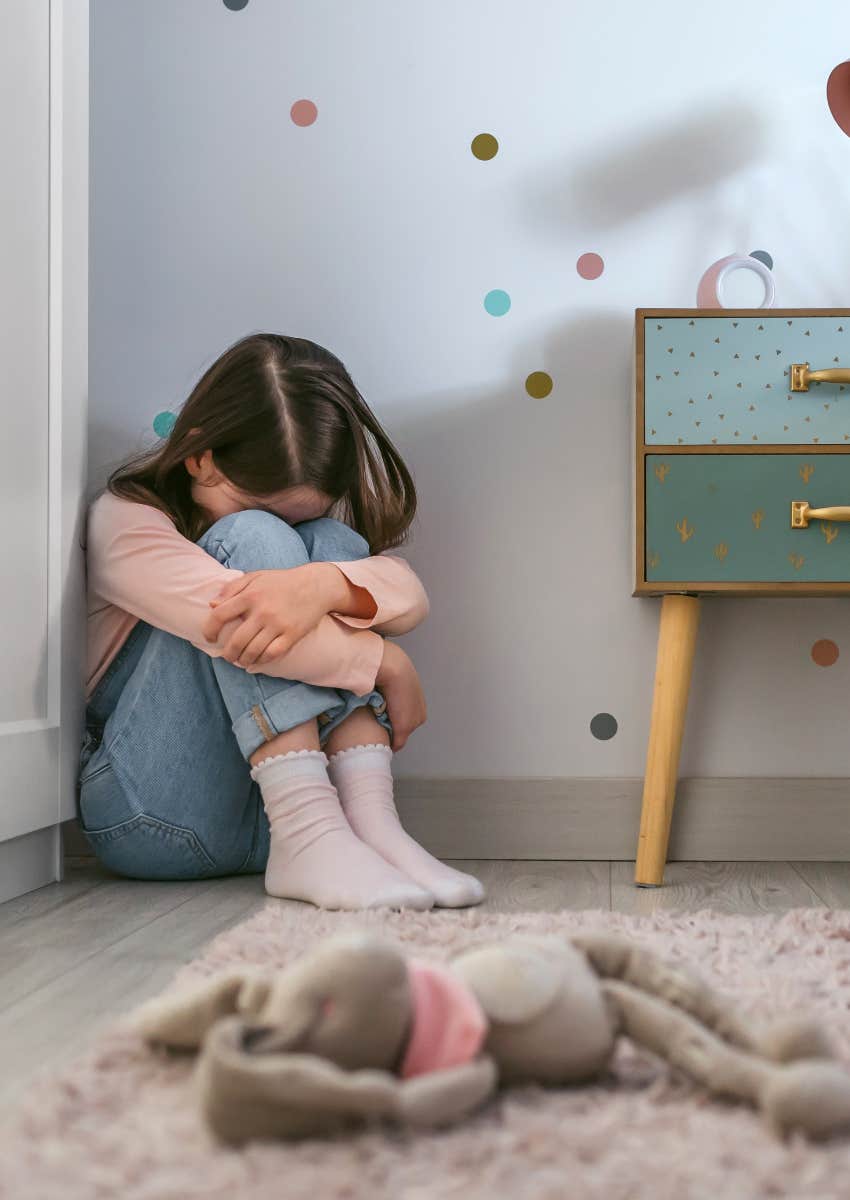10 Habits That Kept You Safe As A Child But Hold You Back As An Adult
At some point, you must let go of the survival tools that protected you during childhood.
 New Africa | Shutterstock
New Africa | Shutterstock It’s human nature to revert to habits and behaviors that keep us safe. Self-preservation is one of our primary functions, after all. However, practices that keep you safe at one point in your life aren’t always what’s best for you at another.
For example, a survival tool that kept you safe as a child may hold you back as an adult. As therapist Brittney Cobb-Farmer wrote on Instagram, “What once kept us safe can now create barriers to connection, happiness, peace, and personal growth.”
Here are 10 habits that kept you safe when you were a child but hold you back as an adult:
1. Supporting others before yourself
Cobb-Farmer said that, as a child, it is easy to take on a “strong caregiver identity.” This is often a result of being forced to care for other children, perhaps siblings, as a kid or having to support your own caregiver physically or emotionally.
 sommthink | Shutterstock
sommthink | Shutterstock
Unfortunately, this can lead to codependency as an adult. You become addicted to your relationship and focus far more on caring for others than yourself, which can lead to burnout and resentment.
2. Perfectionism
Perfectionism can keep you safe as a child because it can be a way “to gain approval and avoid criticism,” according to Cobb-Farmer.
However, as an adult, perfectionism can lead to things like anxiety, depression, eating disorders, insomnia, and much more, per the BBC. While some see perfectionism as a strength because it pushes you to always do your best, it often ends up pushing you too far.
3. Overachieving
It’s possible that as a child, you only felt appreciated or supported when you achieved something noteworthy. While achievement is never a bad thing, it can have its downsides.
Executive coach Melody Wilding calls this “honor roll hangover.” She told Forbes this kind of hangover occurs when you did everything right in school and were rewarded for it. Now, you have “psychological baggage” that makes you think that’s how the world works.
“It can create an unhealthy attachment to external validation, making it hard to feel content, no matter what you do,” Cobb-Farmer said.
4. Hypervigilance
“As a child, growing up in a chaotic or unsafe environment may have made you hyper-aware of potential threats,” Cobb-Farmer stated.
Everyone experiences hypervigilance to a certain level, but some levels can be toxic. Hypervigilance can be responsible for everything from PTSD to dementia to fibromyalgia, the Cleveland Clinic noted.
Cobb-Farmer also pointed out that it can lead to problems with trusting others, which is essential for healthy relationships.
5. Self-isolating
According to Cobb-Farmer, “As a child, withdrawing into solitude may have been a way to protect yourself from bullying, emotional neglect, or chaotic home environments.”
It’s not surprising that this can lead to some pretty bad things when you’re an adult. The CDC named a few as heart disease, type 2 diabetes, and even “earlier death.” It’s essential to make and maintain connections as an adult to avoid becoming part of the loneliness epidemic.
6. Remaining quiet
When you are a child in an abusive or unstable setting, staying quiet can be a form of protection. People are more likely to overlook you.
However, when you grow up, Cobb-Farmer said this can affect personal and professional relationships as it “can manifest as difficulty expressing opinions or standing up for yourself.”
 David Pereiras | Shutterstock
David Pereiras | Shutterstock
7. An abundance of independence
Being independent can benefit you as a kid in a negative situation when you are made to feel like you’re not supposed to ask for help, said Cobb-Farmer.
But, the effects as an adult can be similar to those of self-isolation. “Researchers have found that people who avoid asking for help may suffer significant social and professional costs,” Psychology Today shared.
Although it may feel easier to do things on your own, it’s important to involve other people in your life.
8. Avoiding conflict
It’s pretty obvious why this would benefit a child in an unhealthy home environment. In fact, it would practically count as a survival mechanism.
However, as Cobb-Farmer said, “As an adult, avoiding conflict can prevent you from addressing important issues in relationships, work or personal growth.”
9. People-pleasing
When you’re a kid in an unsafe situation, pleasing others can be vital. While being there for others is never a bad thing, James Madison University noted that it does have disadvantages as an adult.
“They may experience fear or rejection and disappointing others, have low self-esteem, difficulty making independent decisions, and difficulty setting healthy boundaries,” they said.
“It hinders assertiveness and can make you feel trapped in relationships that don’t serve you,” Cobb-Farmer added.
10. Suppressing emotions
Unfortunately, some kids grow up “in an environment where emotional expression was not allowed or safe,” Cobb-Farmer noted. In those cases, keeping your feelings a secret is essential.
As an adult, you don’t have to do that, though. Suppressing emotions causes stress, social worker Katherine Cullen told Psychology Today. This stress can lead to serious physical health problems.
It’s OK to let your emotions out and let people know what you’re feeling. And, unlike when you were a child, it’s actually safer.
Adopting these habits as a child in an unsafe environment isn’t just understandable — it’s commendable. Holding onto them in adulthood, however, can be dangerous. Don’t let the negative aspects of your childhood continue to hold you back now.
Mary-Faith Martinez is a writer with a bachelor’s degree in English and Journalism who covers news, psychology, lifestyle, and human interest topics.

